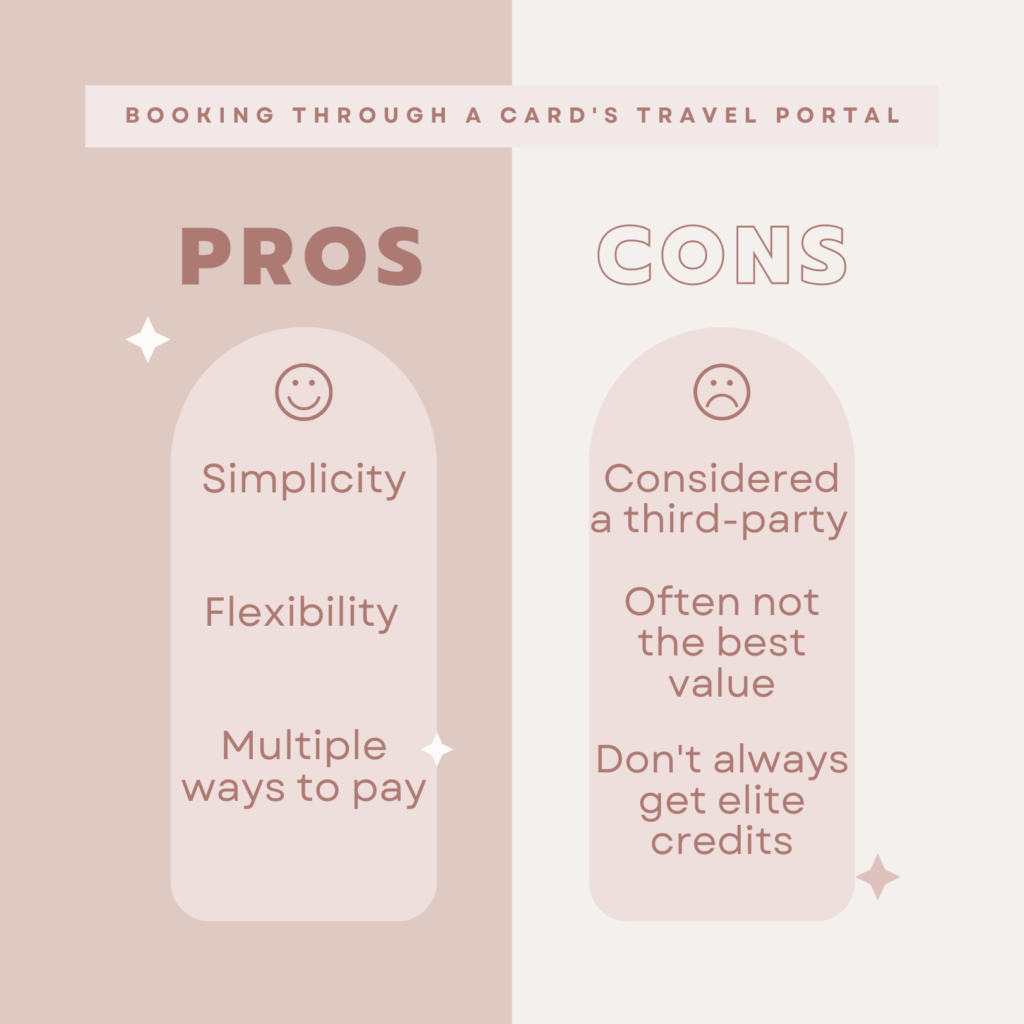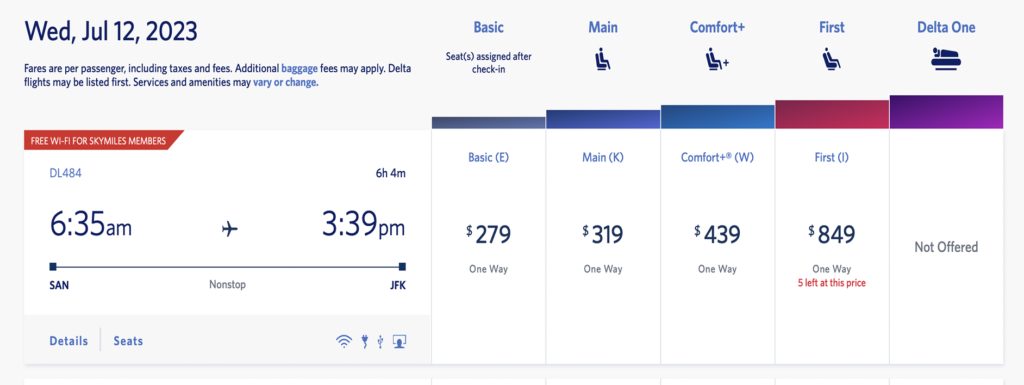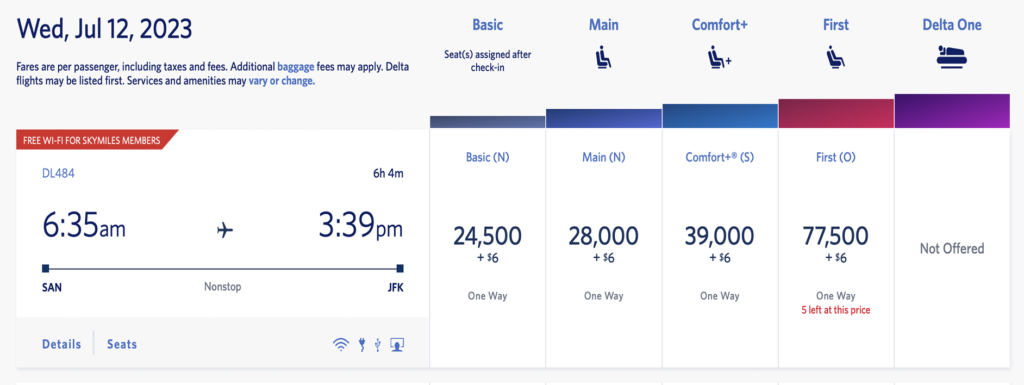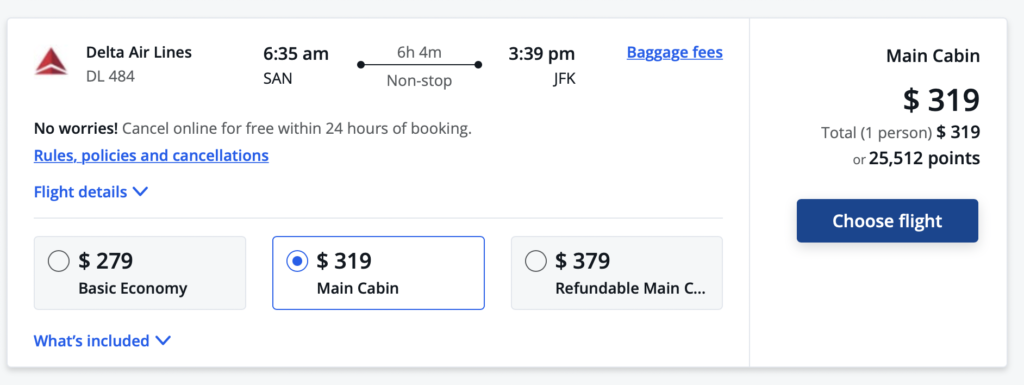Most major credit cards, such as Chase, American Express, and Capital One, have their own travel portals that allow travel booking using points, miles, or cash. These portals typically have a fixed redemption rate of 1-1.5 cents per mile. But are these a good deal? Let’s review the pros and cons and review when it might make sense to use a bank’s portal.

What are the pros & cons?

Pros
- Simplicity – Portals are pretty straightforward. You can search for flights or hotels, find one you like, and book it right there. All in one spot. Boom. Easy peasy.
- Flexibility – Booking through credit card travel portals means you don’t have to worry about award availability or blackout dates. If a flight or hotel room comes up in your search, you can book it.
- Multiple ways to pay – Portals will offer you the option to pay for a flight or hotel room using a combination of points and cash. This option is helpful when you don’t have enough points to cover the full booking amount.
Cons
- Third-Party Problems – When you book through credit card travel portals, this is considered a third-party platform. Which means you have now introduced a middleman. Sometimes this isn’t a big deal. However, it can be problematic if you hit travel snags, such as flight delays or cancellations. In these situations, the airline will tell you that you need to contact the bank through which you made the booking. Nothing is more frustrating than trying to frantically reschedule a delayed flight and having the airlines tell you ¯\_(ツ)_/¯ because you didn’t book directly through them.
- Value – I break down here why I think you most often glean the most value by booking through a transfer partner rather than a travel portal.
- Missing out on elite credits – Because it’s considered a third-party booking platform, you usually will not receive elite credits or perks with hotels and airlines when you book through a portal. This is a bummer.
When does it make sense to use a travel portal?
There are times when booking through a travel portal can make sense.
- It makes sense to use a portal when you’re utilizing a travel credit on one of your cards. Many cards provide annual perks or credits, but they typically require you to make bookings through their designated portal to take advantage of these benefits. For instance, the Chase Sapphire Preferred card offers a $50 hotel credit annually. But, it can only be utilized when booking the hotel room through the Chase portal.
- Sometimes it is just worth it to have the simplicity and flexibility. I’m not talking about long-haul premium cabin seats here. But sometimes, when booking domestic short-haul flights, simple and easy wins.
- Occasionally, you can find a better deal on a travel portal. Let’s look at an example. Let’s say I want to fly from San Diego to New York. There’s a Delta flight that works perfectly for me. If I search on Delta’s page, I see that the flight costs $319 in the main cabin.

Let’s switch to paying with Delta SkyMiles and see how much that flight costs.

That flight costs 28,000 Delta SkyMiles plus $6 in taxes. Let’s check the price in our Chase Sapphire Preferred travel portal.

So, in this situation, using Chase Ultimate Rewards and booking through the Chase portal would cost 25,512 points, a savings of 2,488 points. HOWEVER, referring back to our pros and cons chart – it’s worth deciding if introducing the middleman (and the problems this may incur) is worth the 2,488 points savings.
Conclusion
My preferred method for booking travel is to transfer my points to travel partners. However, there are some perks to booking through a card’s travel portal. It’s always best practice to compare both ways before clicking “book now.” This helps ensure you are getting the best value for those hard-earned points.




